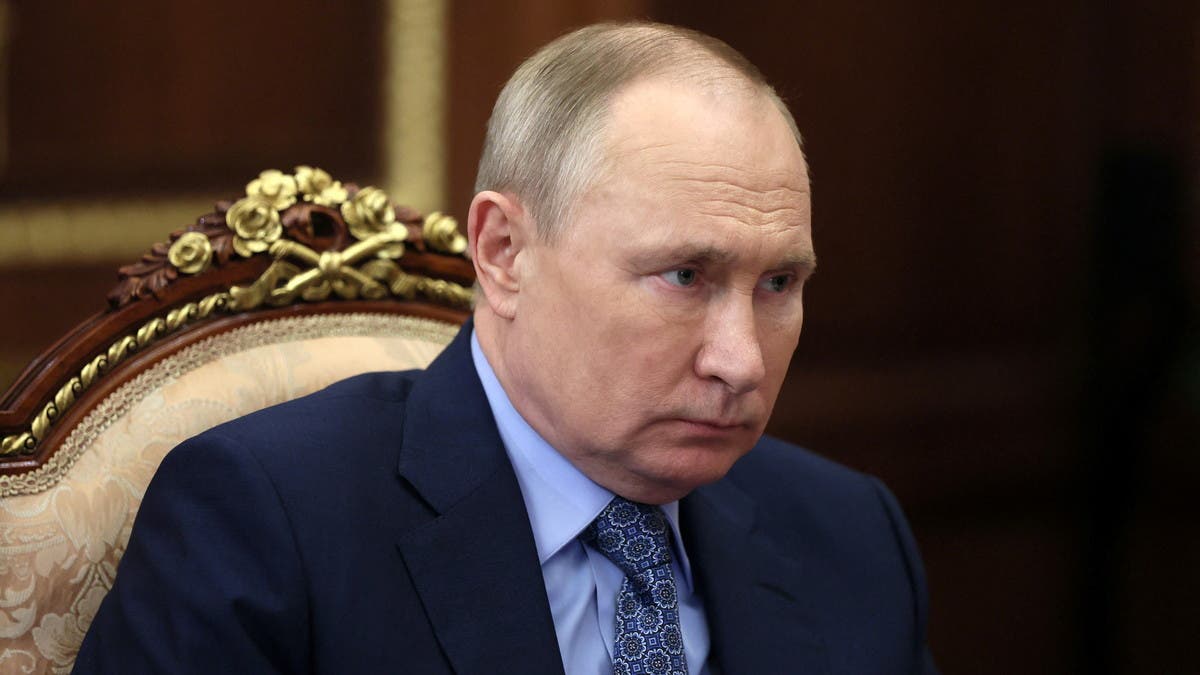Germany, France and other countries have accused Russia of war crimes in the town of Bucha just outside Ukraine's capital Kyiv.
The mayor of Bucha said on Saturday that 300 residents had been killed by Russian troops during a month-long occupation. Victims were seen by Reuters in a mass grave and lying in the streets.
The Russian defence ministry in Moscow did not immediately reply to a request for comment when asked on Sunday about bodies found in Bucha.
For the latest headlines, follow our Google News channel online or via the app.
Russia has previously denied targeting civilians and rejected allegations of war crimes in what it calls a “special military operation” in Ukraine.
Even before Bucha, Ukraine and its Western allies accused Russian forces of targeting civilians indiscriminately, citing the bombing in the southern port of Mariupol of a maternity hospital and a theater marked as sheltering children.
Legal experts said a prosecution of President Vladimir Putin or other Russian leaders would face high hurdles and could take years, as outlined below:
How is a war crime defined?
The International Criminal Court in The Hague defines war crimes as “grave breaches” of the post-World War Two Geneva Conventions, agreements which lay out the international humanitarian laws to be followed in war time. Breaches include deliberately targeting civilians and attacking legitimate military targets where civilian casualties would be “excessive,” legal experts said.
The USSR ratified the Geneva Convention in 1954. Russia in 2019 revoked its recognition of one of the protocols, but remains a signatory to the rest of the agreements.
How might a case proceed?
The International Criminal Court's chief prosecutor, Karim Khan, said last month he had opened an investigation into possible war crimes in Ukraine.
Neither Russia nor Ukraine is a member of the ICC and Moscow does not recognize the tribunal. But Ukraine has given its approval to examine alleged atrocities on its territory dating back to Russia's annexation of Crimea in 2014.
Russia may decide not to cooperate with the ICC and any trial would be delayed until a defendant is arrested.
What is the standard of proof?
The ICC will issue an arrest warrant if prosecutors can show “reasonable grounds to believe” war crimes were committed. To obtain a conviction, the prosecutor would have to prove a defendant's guilt beyond a reasonable doubt, experts said.
For most charges, that requires proving intent. One way to do this would be for a prosecutor to show there were no military targets in the area of an attack and that it was not an accident.
“If it keeps happening again and again and the strategy appears to be to target civilians in urban areas, then that can be very powerful evidence of an intent to do so,” said Alex Whiting, a visiting professor at Harvard Law School.
Who could be charged?
A war crimes investigation may focus on soldiers, commanders and heads of state, experts said.
A prosecutor could present evidence that Putin or another state leader committed a war crime by directly ordering an illegal attack or knew crimes were being committed and failed to prevent them.
What makes a war crime conviction difficult?
Legal experts said the bombings of the theater and maternity hospital in Mariupol appear to fall under the definition of war crimes. But securing a conviction can be difficult.
In addition to the challenges they face proving intent in many cases and linking leaders directly to specific attacks, prosecutors can have a tough time obtaining evidence from a war zone, including interviews with witnesses who might be intimidated or otherwise reluctant to speak.
In the case of Ukraine, ICC prosecutors will comb through publicly available video and photographic evidence.
Bringing defendants to trial can also be difficult. Moscow is almost certain to refuse to comply with arrest warrants. The ICC will have to track potential defendants to see whether they travel to countries where they can be arrested.
Are there any precedents?
Since the ICC was formed, it has overseen 30 cases, some with multiple defendants, its website says. ICC judges have convicted five people of war crimes, crimes against humanity and genocide, and acquitted four others. Congolese warlord Thomas Lubanga Dyilo was convicted in 2012.
The court has issued arrest warrants for several defendants who remain at large, including Joseph Kony, leader of the Lord's Resistance Army militia group in Uganda.
The United Nations in 1993 created the separate International Criminal Tribunal for the former Yugoslavia to examine crimes that took place during the Balkan Wars, which issued 161 indictments and sentenced 90 individuals.
A year later, the United Nations set up the International Criminal Tribunal for Rwanda to judge those responsible for the genocide and other crimes committed there and in neighbouring states in 1994. It indicted 93 people and sentenced 62.
Legal experts have raised the possibility of creating a separate tribunal to examine potential war crimes in Ukraine, which could be done through the United Nations or a treaty.
Read more:
US, NATO express shock over civilian killings in Ukraine
Russia must pay for ‘war crimes’ in Bucha, Germany says
French FM Le Drian condemns ‘massive abuses’ committed by Russian forces in Ukraine

 World3 years ago
World3 years ago
 World3 years ago
World3 years ago
 Business1 year ago
Business1 year ago
 Entertainment7 years ago
Entertainment7 years ago
 World7 years ago
World7 years ago
 Entertainment7 years ago
Entertainment7 years ago






